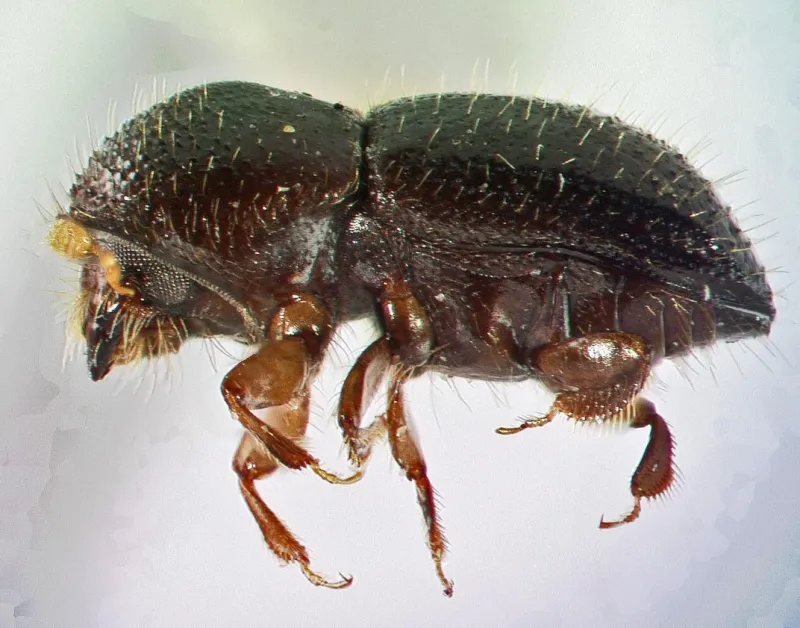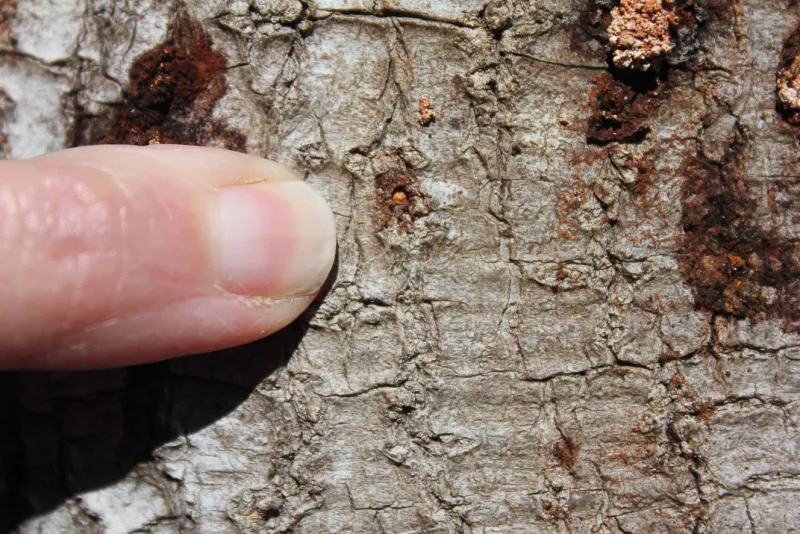Quick Summary
The Invasive Shot Hole Borer (ISHB) is a term used for two related shot hole borer beetles, Polyphagous Shot Hole Borer (PSHB) and Kuroshio Shot Hole Borer (KSHB). These beetles (Euwallacea spp.) attack multiple host trees, including landscape and native trees, and spread a pathogenic fungus (Fusarium spp.), causing tree dieback.
Invasive Shot Hole Borer, Euwallacea sp.

What to look for:
- Multiple, small, perfectly round (<0.1 inch diameter) holes created by beetles entering tree
- dry or wet and oily dark stain around beetle holes caused by Fusarium infection transmitted by beetle
- white, crusty ring of sugar (aka “sugar volcano”) found on box elders and avocados
- leaf discoloration, wilting
- branch dieback, canopy loss, and eventual tree loss
NOTE: these symptoms can appear similar to WOBB symptoms, but beetle holes are LARGER
Beetle Damage. Exit hole.

The current distribution map of this pest can be found here.
More information and Resources
UC ANR Pest and Diseases of Southern California Oaks, PSHB
UC ANR What are the Polyphagous and Kuroshio Shot Hole Borers?
UCR Center for Invasive Species Research, Polyphagous Shot Hole Borer
UCR Eskalen Lab Guide to PSHB + Fusarium Dieback, Symptoms and look alikes
